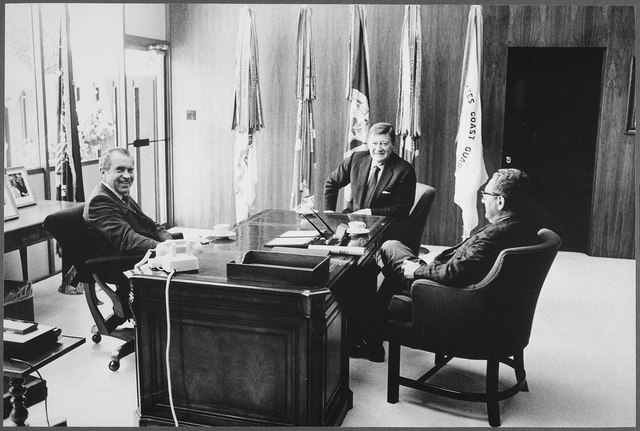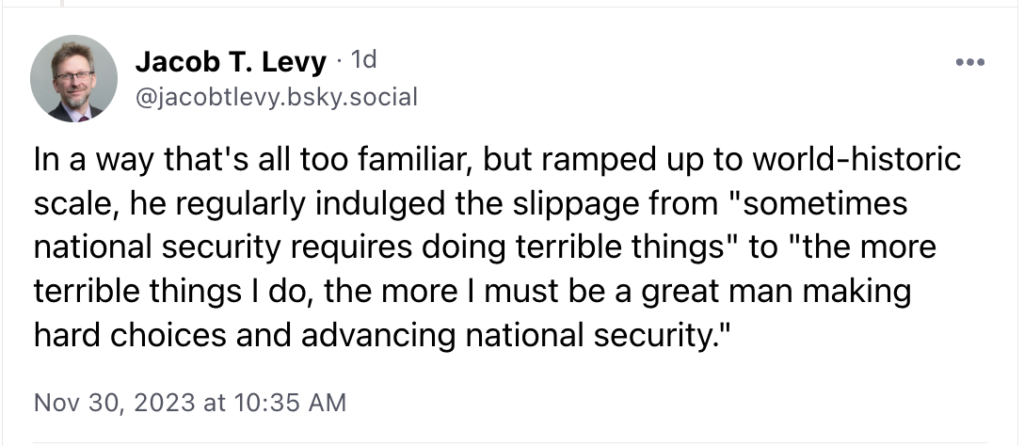Kissinger, ur-MAGA

As Jamelle Bouie observes, Henry Kissinger is a classic illustration that Donald Trump is more symptom than cause of the threat the Republican Party poses to democracy in the United States:
This is just a sampling of Kissinger’s activities, which would continue in the decades after he left government, when he worked as a private consultant and guru, of sorts, for a wide variety of political and business leaders. “No former national security adviser or secretary of state has ever wielded as much as influence after leaving office as Kissinger,” the historian Greg Grandin notes in his obituary for The Nation. That influence explains why, as Spencer Ackerman observes in Rolling Stone, Kissinger “died a celebrity,” a valued and feted member of the American establishment.
Kissinger’s death comes at a time of mounting anxiety over the future of American democracy. There is real fear that Donald Trump, if granted a second term in the White House, will dismantle our system of constitutional self-government in favor of some kind of autocracy. It is worthwhile, then, to think not just about Kissinger’s influence on American foreign policy but also about his influence on American democracy. This you can sum up in the contempt he expressed for Chilean democracy when he remarked that there was no reason for the United States to “stand by and let Chile go Communist merely due to the stupidity of its own people.”
Kissinger, like his patron Nixon, showed nothing but contempt for accountability, public opinion or the rule of law. Writing for The Atlantic, the historian Gary J. Bass notes that Kissinger ignored outright a congressional prohibition against sending arms to Pakistan.
He brushed aside warnings from White House aides and lawyers at the State Department and the Pentagon that it would be illegal to transfer weapons to Pakistan. In 1971, with Attorney General John Mitchell present, Nixon asked Kissinger, “Is it really so much against our law?” Kissinger admitted that it was. Not bothering to concoct a legal theory about executive power, Nixon and Kissinger simply went ahead and did it anyway. “Hell,” Nixon said, “we’ve done worse.”
And, needless to say, he’s the ultimate example of how seamlessly bloodthirsty goons with pure contempt for legal restraints can maintain members in extremely good standing of the American political and cultural elite.
I also haven’t seen anybody put Kissinger’s ethos any better than this:



